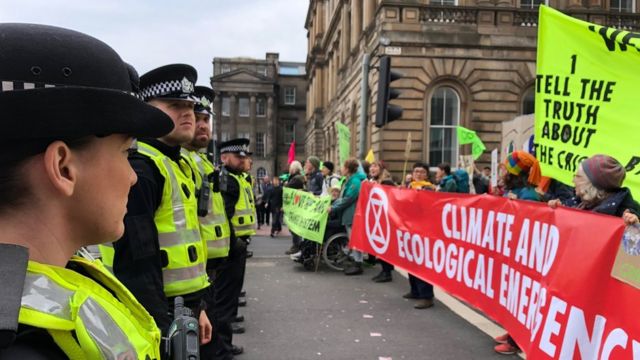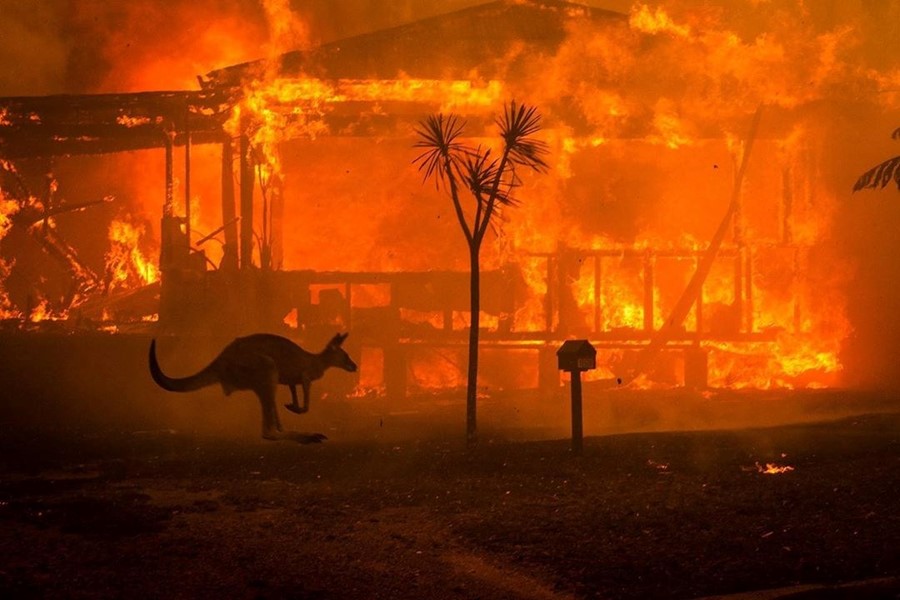Watch the news or scroll on a news site for an hour and you will probably come across a piece talking about protests. The issues which these protests cover are relavent to the modern day, and it is highly likely that you first heard about these issues through a protest or event that occured and was covered by a news program. Protests are a great way for many people to come together to support or oppose a specific issue. Whether peaceful or violent, they seem to catch the eye of many throughout the country and/or world. This large spotlight comes with many side-effects, both positive and negative. The positive being that the cause is spread to those who may not hear it, and the negative being that anything the protestors do is seen on a incredibly large scale. In recent years, there has been many protests and gatherings to support the upkeep of our planet’s environment and help keep the world healthy. Also, in recent years, there has been an increasing prevalence in more radical and uber-passionate types of debates and protests. This has sadly affected protest regarding the environment, and has led to some regression in the convincing of the public to be more aware of their actions and how they affect the world in which they live in- which is what I believe the main goal is that many who gain the public’s eye attempt to communicate.

To gain support from those who initially oppose you requires you to build a mutual respect and not be ignorant to the other side’s beliefs and reasoning – both of which are the foundation of a successful conversation. The route which seems to be taken more, though, is to cause disruption and demean the opposing side. One of the recent examples of the lack of civility is in the environmental protests that disrupted the Yale-Harvard football game in November. Also in the past few months there has been numerous instances of people blocking the streets to bring attention to their climate protests. A few days ago, this happened in Glasgow, and 3 months ago it happened in London, Berlin, Sydney, and Amsterdam. As
It’s just the latest manifestation of the dangerous illusion that… street protests based more on social media than sustained political organizing is the way to change society.”
There needs to be rhyme and reason in the action of a group to enact political change, and this is something that I see a lot of the masses lacking in the climate debate. At the governmental level it seems to diminish, but not go away entirely. Some current politicians prove to be great examples of how to conduct professionally and logically while still keeping in touch with the emotion intrinsic to an argument like climate change.
For the protestors who pursued disruption instead of discussion, environmental protection was something that was extremely important, but the way in which they demonstrated and performed their acts to gain support ended up doing the opposite.

I think what fuels this type of action is the major events that have been taking place like the fires in California, The Amazon, and Australia. This seems to be furthering the ‘end of the world’ idea that plants seeds of fear in people. This turns into the public acting irrationally and doing things that end up hurting the movement that they fight for. These extreme actions then lead to extreme reaction, which creates a viscous cycle. This is an issue that I think is extremely detrimental to the arguments of this civic issue, and as someone who supports 90% of what these protestors are pushing for, it even creates a disdain for them in my mind that makes me not want to be involved with the movement at all. This absolutely depressing because environmental protection is something I deeply care about, but the conduct from many of the most widely spoken groups makes me less inclined to associate myself with the movement. I would also imagine that these events don’t exactly increase the respect or credibility that the people who oppose these ideas have for the protestors who cause the disruption.
A way to get around this endless loop of unproductive arguments and protests is to realize the methods of effective arguing and do what has the most impact, not which evokes the most response. There should be a balance of ethos, pathos, and logos in the arguments to effectively communicate the ideas that one wants to see enacted. I genuinely hope that this is something that changes, because I truly want to see change happen in this regard.
These fires in Australia and very sad and dangerous, so I am glad you took the time to write about it! You wrote very well and I found it interesting to learn more about the fires. Good job.